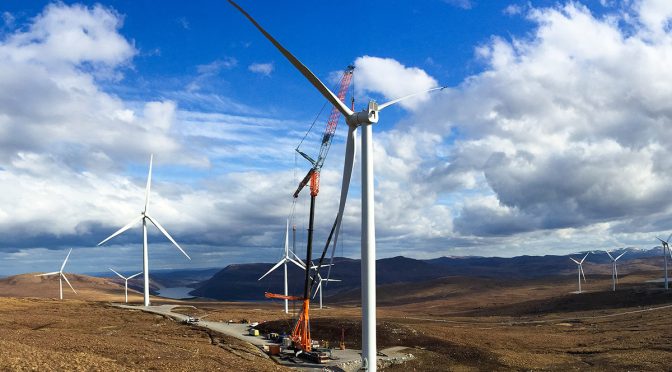On Tuesday 18 February WindEurope in cooperation with SolarPower Europe, SmartEn and the Renewables Grid Initiative presented four policy recommendations to EU Energy Commissioner Kadri Simson at the emPOWER event. The recommendations focus on how a renewables-based energy system is the keystone to the European Green Deal.
The recommendations focus on the goals of the Climate Law, electricity infrastructure planning, the acknowledge of the strategic importance of renewable and smart energy technologies, and how the Green Deal should foster a just transition for all Europeans.
A renewables-based energy system is the keystone of the European Green Deal
Climate neutrality is a tremendous opportunity for growth, industrial competitiveness, job creation, nature protection and enhancing the quality of life of Europeans.
Achieving a fully renewables-based energy system will be the keystone of this transition. The ambitious deployment of renewable electricity and demand-side flexibility are pre-conditions to meeting European climate and energy objectives, and the most cost-effective way to achieve significant CO2 emission reductions in the coming decade.
The European Union has the technologies and knowhow required to accomplish this profound transformation. Solar and wind are today the most competitive and sustainable forms of power generation and will deliver, with the right policies in place, the 2,200 GW of capacity required to achieve climate neutrality ahead of 2050.
Europe’s extensive potential for Demand-Side Flexibility and the effective use of interconnections can ensure the efficient and reliable operation of the energy system based on variable renewables. The EU’s potential of demand response alone is estimated at 160GW by 2030, and the continued uptake of energy storage capacity adds a further dimension to Europe’s flexibility potential.
A successful transition toward climate neutrality will require an integrated approach prioritizing the deployment of smart energy solutions, grids and renewables, and optimised sector integration, underpinned by an ambitious European industrial strategy.
In this light, and ahead of the publication of the European Climate Law, we call on European policymakers to consider the following:
- The Climate Law must accelerate the implementation of the Clean Energy Package, empower the European Commission to secure the delivery of the EU’s 2030 climate and energy targets at national level and enhance its Nationally Determined Contribution (NDC) in line with the Paris Agreement. The revision of State Aid rules should be consistent which such frameworks.
- The European Union must ensure integrated and collaborative electricity infrastructure planning, including the integration of all decentralised energy and flexibility resources. This will strengthen Europe’s grid – the backbone of renewables-based electrification and smart sector integration – and prevent the societal costs of stranded assets.
- The European Union must acknowledge the strategic importance of renewables and smart energy technologies for a successful transition towards climate-neutrality, and develop an ambitious industrial strategy encompassing both supply-side and demand-side policies.
- The European Green Deal should foster a fair transition for all Europeans by promoting benefit sharing and inclusion in decision-making processes in particular for impacted communities and vulnerable households. Crucially, it should support re-skilling programmes to help address the economic and social impacts of the transition by creating job opportunities within the renewable and smart energy sectors. It must also ensure nature protection.


